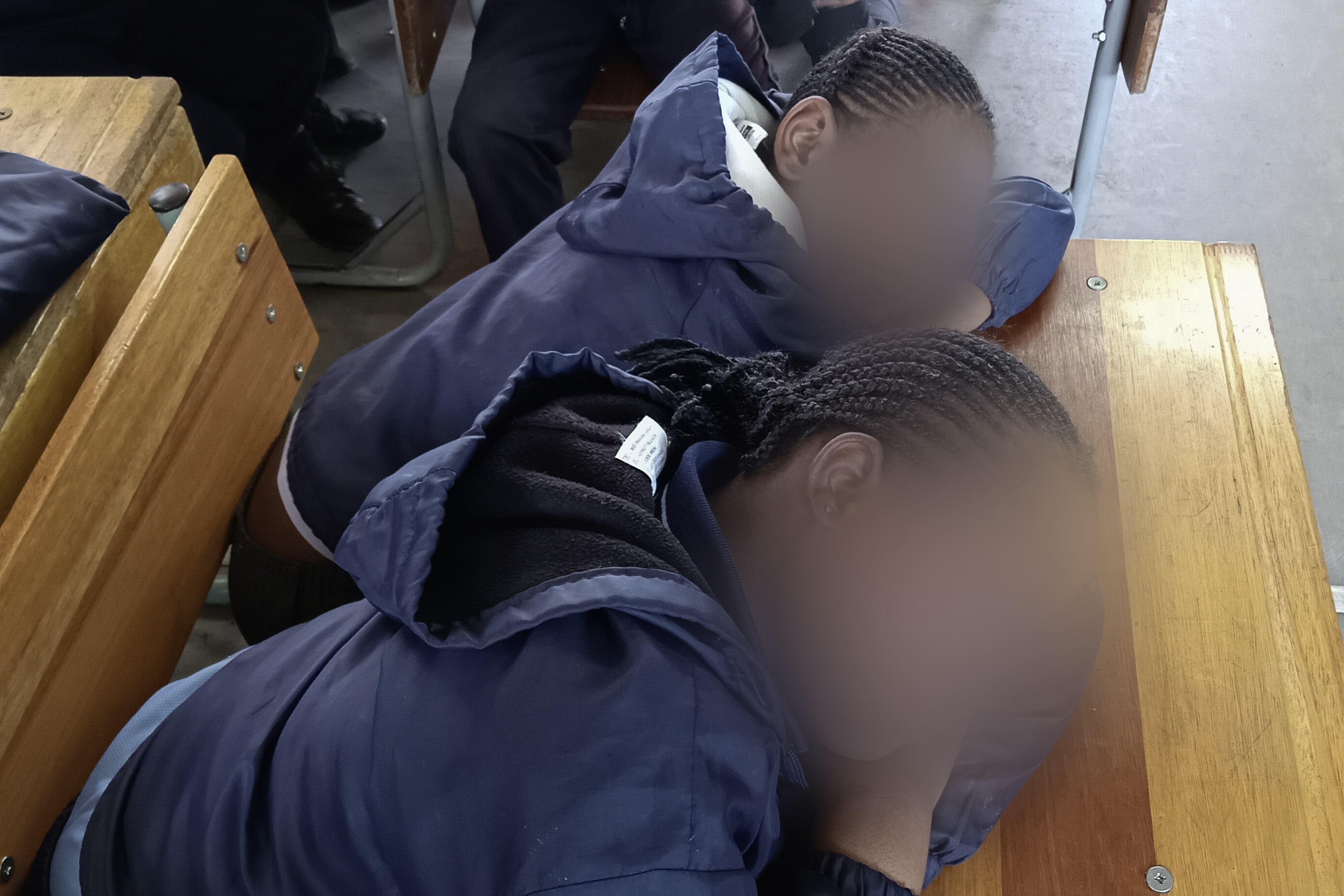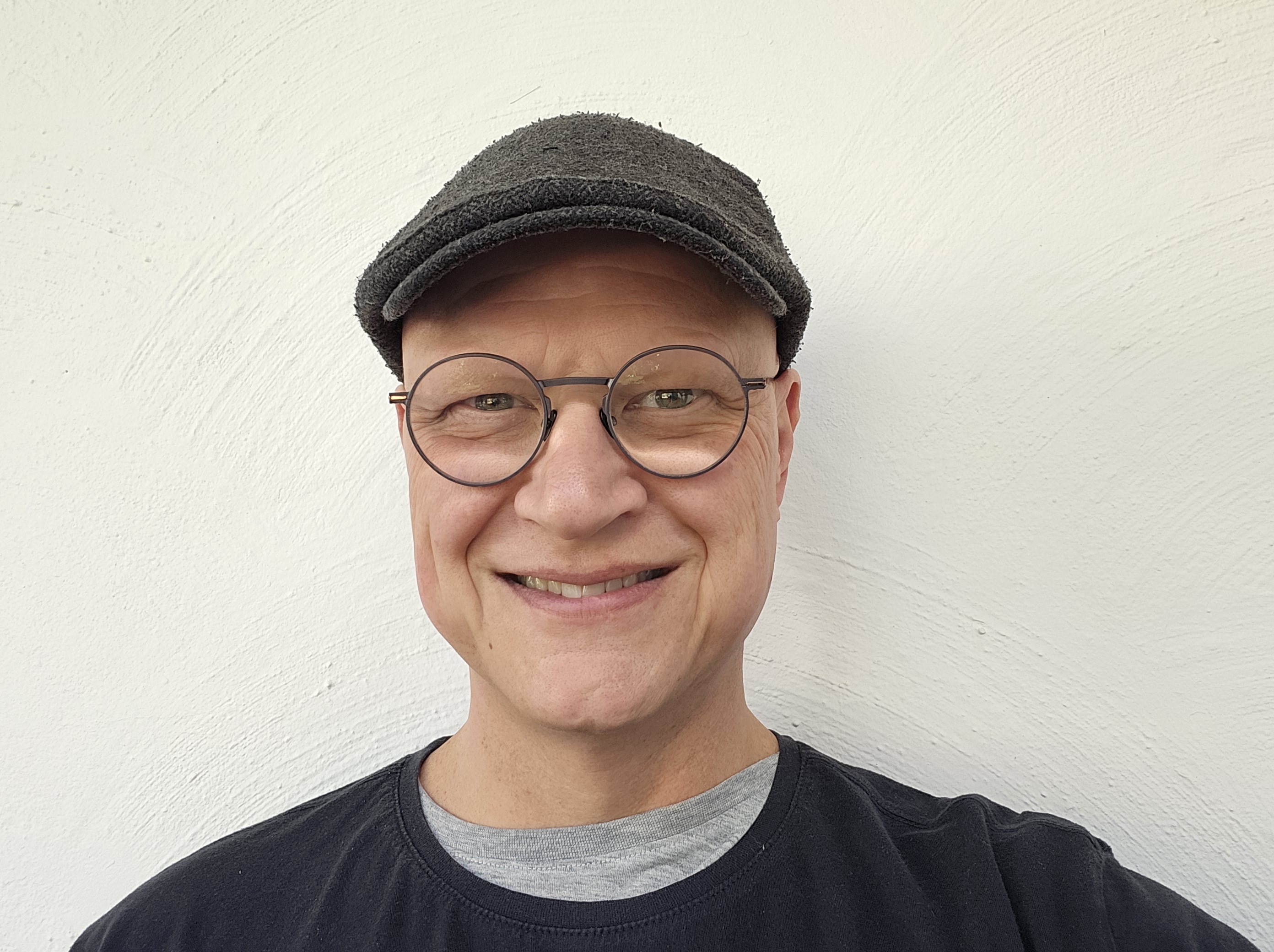
Pupils taking a nap in class at one of the special schools in Limpopo. Photo: Ntokozo Abraham/SAAJP
The South African Democratic Teachers’ Union (Sadtu) has called on the Department of Basic Education to intervene decisively to ensure that no schools for learners with special education needs (LSEN) is forced to shut down or compromise its teaching and learning environment due to unaffordable electricity charges.
Responding to our media enquiry, Sadtu said a deeply concerning case has emerged in Estcourt, KwaZulu-Natal where one LSEN school was forced to close its doors in June due to unpaid electricity bills.
SADTU General Secretary Dr Mugwena Maluleke said, the interests and rights of pupils with special needs must remain a priority, and their education cannot be sacrificed for the profit of service providers.
Maluleke said:
“To reopen, the school had no choice but to use its norms and standards
allocation to settle an electricity bill of R139 000 for just one month.
This has come at the expense of procuring much needed learning and teaching
materials, directly compromising the quality of education for these vulnerable
learners.”
Maluleke added, “Learners with special needs already face significant barriers to education due to the limited number of LSEN schools available. It is unacceptable that those few schools are being threatened with closure because of exorbitant electricity costs.”
Many schools complained that their bills are high even during school holidays,
when usage is low. Our data sample shows that in some cases, this seems to be
due to very high peak demand fees, measured in kilovolt-amperes (kVa), which
are estimated based on the maximum amount of power a school is likely to draw
at any one time. Many schools, such as Harry Oppenheimer Agricultural High
School in Limburg, Limpopo are being charged for a connection four times the
actual peak demand.
Energy expert, Chris Yelland said it appears some schools have – and had to pay for - a bigger connection than they needed.
Peak capacity charges are not applied to all electricity tariffs, and can be more than R50 000 a month. This heavily penalises schools who are forced to pay these charges compared to schools which don’t pay them at all. In addition, many schools believe there are issues with the usage recorded on their bills (measured in kilowatt hours, kWhs).
Yelland said, “They have to check their meter carefully once a month. They must make sure the invoice reflects the figure that is in there. They must keep a proper record. They might also find there is a lot of illegal connections during school holidays. If they find that their meter is higher during December or holidays, there is something going on.”
Many schools also told Diary Series of Deaf People that they do not have access to their meter and showed us bills which were not broken down into usage numbers.
Graphics: Adam Oxford/SAAJP
Yelland said every municipality is different, and they should be able to give customers accurate usage readings and a printout of their tariff.
“We have to look into whether the municipalities are charging according to what is in the tariff book. Customers have the right to challenge it,” said Yelland.
The eThekwini Municipality’s Spokesperson Gugu Sisilana said, the municipality is not overcharging. She said eThekwini supplies electricity to Damorosa Pre-Professional Secondary School, Durban School for the Deaf, Golden Steps Special School, Khulangolwazi Special School, Mason Lincoln Special School, Ningizimu Special School, St Raphael Special School, Sunfield Home School and VN Naik School for the Deaf, but charges them according to their consumption and according to the tariffs approved by the Council.
Sisilana said:
“The municipality has two
tariffs, business and residential. Schools are charged on commercial rates.
However, kindly note that the reason for the high bills is due to high
consumption. Charges are based on the actual consumption and not whether
schools are open or closed.”
Asked to clarify their policies on the schools, Sisilana said the municipality has various rebates for NPOs and schools catering for the children with special needs, specifically for rates and not services.
The investigation showed that several cases in which energy bills for schools are estimated at a flat monthly or daily rate, which does not take into account any historical change of usage at certain times of the year, for example during different seasons or holiday periods. These charges can be substantial - VN Naik School for the Deaf in eThekwini faces bills of over R70 000 a month based on flat estimates of 879kWhs per day - where similar sized schools use less than one-tenth of the energy.
Yelland said, “You cannot charge a customer a fixed fee, irrespective of the amount of energy you use or do not use. What happens if you shut the school over Christmas period, and not using any electricity? Then, should you be charged a fixed energy cost, that would be illegal.”
Yelland said:
“There are different
tariff options. You can only be charged what is being approved by the
regulator. And every municipality has to get its tariff approved by the
regulator. If they are charging what is been approved by the regulator then
that is correct. If they are not, customers have the right to challenge it. They
can take the matter up with the regulator and if they don’t get any joy they
can go to court. But they have to make sure their cases are solid, and the best
way is to make sure they read their meters themselves every three months.”
Sisilana said, “Tariffs are proposed around the month of February each year. They are then circulated widely for inputs and comments through public participation programs before the council adopts its annual budget, which is around May each year. So, the tariffs are reviewed annually during the budget preparation process. The municipal charges are based on the tariffs approved by NERSA and not Eskom, based on the distribution costs and infrastructure maintenance.
Sadtu demands that the matter about electricity costs be addressed with urgency.
“These schools play a critical
role in catering for learners with intellectual disabilities and other learning
challenges. Sadtu condemns the exorbitant
cost of electricity imposed on schools for LSEN.
They often operate with small class sizes and use specialised methods of
teaching which requires higher budget allocations than mainstream schools. However,
instead of being directed toward essential resources such as specialised
learning and teaching materials, wheelchairs, proper sanitation facilities,
classrooms and hostels fit for learners with special needs, these funds are now
used to pay exorbitant electricity bills.”
Maquassi Hills, Sol Platjie, Rustenburg and Polokwane Municipalities had
not responded at the time of going to print.
Vicky Abraham is an investigative journalist, Ntokozo Abraham, an economic and data journalist of Diary Series of Deaf People (www.thedeafdiary.com) and Adam Oxford a data journalist and founder of Area of Effect (areaofeffect.tv). This investigation is produced by the Southern Africa Accountability Journalism Project (SA | AJP), an initiative of the Henry Nxumalo Foundation with the financial assistance of the European Union. It can under no circumstances be regarded as reflecting the position of the European Union.



